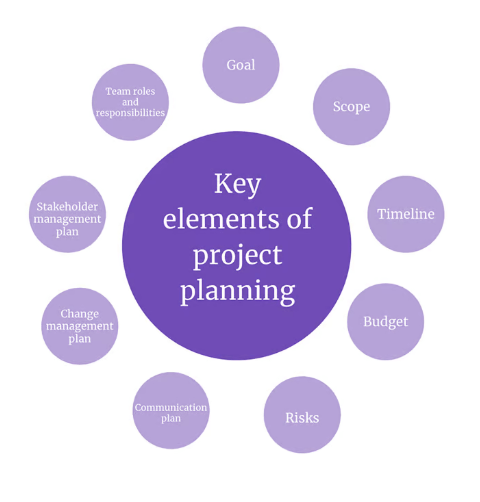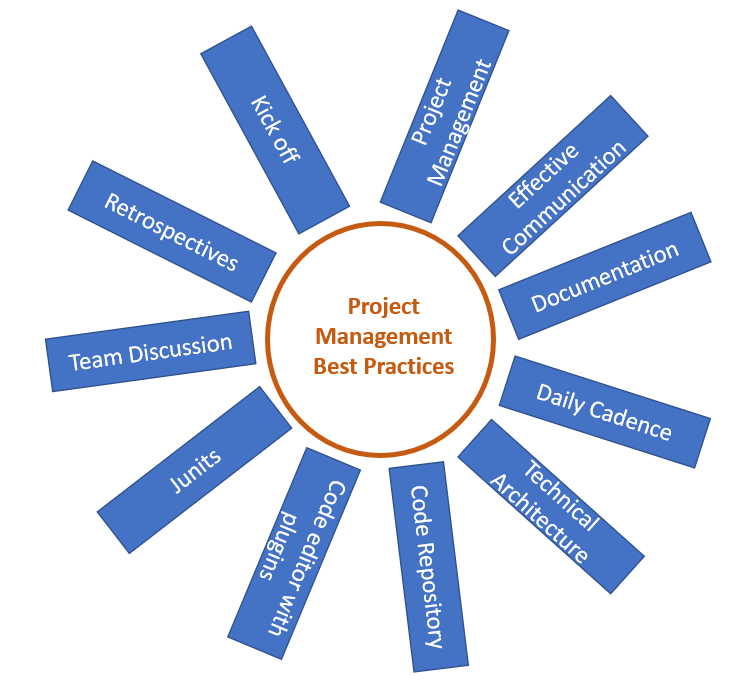
- Introduction to Project Management Plans
- Importance of a Project Management Plan
- Key Elements of a Project Management Plan
- How to Use Each Element of the Project Management Plan
- How a Project Management Plan Affects Project Success
- Best Practices for Creating a Project Management Plan
- Tools for Project Management Planning
- Conclusion
Eager to Acquire Your Data Science Certification? View The Data Science Course Offered By ACTE Right Now!
Introduction to Project Management Plans
A project management plan serves as a blueprint for how a project will be executed, monitored, and closed, providing clear direction for the project team. It is a comprehensive document that outlines the strategies, processes, and guidelines necessary to achieve the project’s objectives. From initiation through to closing, the plan ensures that all team members are aligned with the project’s scope, timeline, budget, and quality standards. A well-crafted project management plan is essential because it defines key elements like roles, responsibilities, and goals, ensuring that each team member knows what is expected of them. This plan also includes necessary components like Data Science Training, ensuring that team members have the skills and knowledge needed for the project’s technical aspects. This clarity helps avoid confusion, reduces the risk of mistakes, and fosters efficient collaboration. Additionally, the plan sets up a framework for tracking progress, managing risks, and making adjustments as needed, ensuring that the project stays on course even when challenges arise. Moreover, the project management plan is a vital communication tool. It allows stakeholders to stay informed and engaged throughout the project, ensuring their expectations are managed and that they are kept up to date on key developments. In summary, a well-constructed project management plan is indispensable for guiding teams to successful project completion and ensuring that all aspects of the project are effectively controlled and executed.
Importance of a Project Management Plan
The importance of a project management plan cannot be overstated. It provides clarity, structure, and direction to the project team, ensuring everyone is aligned and focused on achieving the project goals. Without a well-defined project management plan, project activities could become disorganized, leading to inefficiencies, confusion, scope creep, and potential failure. A comprehensive project management plan serves as a roadmap, outlining every aspect of the project, including roles, responsibilities, timelines, resources, and deliverables. It helps mitigate risks by proactively identifying potential issues and developing strategies to address them before they escalate. Additionally, it plays a crucial role in managing Stake holder Management expectations, ensuring their needs and concerns are addressed promptly and effectively. By clearly defining the scope, budget, and schedule, the plan ensures that the project stays on track and within budget, reducing the risk of costly delays or overspending. Furthermore, it fosters effective communication within the team and with stakeholders, promoting collaboration and transparency throughout the project lifecycle. Ultimately, a well-crafted project management plan is an indispensable tool that enhances the likelihood of successful project completion by providing the structure and guidance necessary to navigate challenges and ensure that the project is delivered on time, within budget, and to the required quality standards.

Key Elements of a Project Management Plan
Project Scope Defines the project’s deliverables and boundaries, preventing scope creep by clearly outlining what is in and out of scope.
Project Schedule Outlines the project timeline with milestones and deadlines, helping track progress and ensure timely completion.
Budget and Resource Management Details the financial resources and human/material resources needed, ensuring proper allocation and availability throughout the project.
Risk Management Plan Identifies potential risks, evaluates their impact, and outlines strategies to mitigate them through Risk Management Strategies, ensuring the project stays on course.
Quality Management Plan Sets quality standards for the project and defines processes to ensure deliverables meet the required benchmarks.
Communication Plan Outlines how and when information will be shared with stakeholders and the project team, ensuring clarity and preventing misunderstandings.
Excited to Obtaining Your Data Science Certificate? View The Data Science Training Offered By ACTE Right Now!
Stakeholder Management Plan Identifies key stakeholders, their needs, and expectations, and ensures regular engagement and updates throughout the project.
Procurement Plan Defines how goods and services will be acquired and managed, ensuring proper vendor relationships and procurement processes.
Change Management Plan Establishes a process for managing changes to scope, schedule, or budget, ensuring changes are evaluated, approved, and communicated effectively.
Project Closure Plan Outlines the steps for closing the project, including deliverable handover and post-project evaluations for future improvement.
How to Use Each Element of the Project Management Plan
Each element of the project management plan plays a specific role in guiding the project towards successful completion. To use them effectively:
- Regularly update the plan: As the project progresses, new challenges may arise. Keep the Project Management plan up to date to reflect changes in scope, risks, or resources.
- Collaborate with the team: Involve the project team in developing and reviewing the plan to ensure all perspectives are considered.
- Monitor and control: Use the plan to track the project’s progress against the schedule, budget, and scope. Make adjustments when necessary to stay on track.
Interested in Pursuing Data Science Master’s Program? Enroll For Data Science Master Course Today!
How a Project Management Plan Affects Project Success
A well-structured project management plan plays a critical role in the success of a project by providing a clear roadmap that guides the team throughout the project lifecycle. It sets clear goals, defines roles and responsibilities, and outlines the necessary steps to achieve the project’s objectives. This clarity helps manage expectations, ensuring that all stakeholders are aligned with the project’s scope and deliverables. One of the key benefits of a project management plan is its ability to control resources effectively, including time, budget, personnel, and Data science Training. With a well-established plan, project managers can allocate resources efficiently, monitor progress, and adjust as needed to stay on track. It also helps in identifying potential risks early, allowing for proactive mitigation strategies to minimize any negative impact. By keeping a close eye on timelines and budgets, a solid project plan ensures that the project remains within scope and is completed on time. Additionally, regular communication and updates within the plan keep stakeholders informed and engaged, fostering their trust and satisfaction. Overall, a thorough project management plan is essential for achieving project goals, minimizing risks, and ensuring successful outcomes.

Best Practices for Creating a Project Management Plan
- Be clear and concise: Avoid ambiguity in the plan. Each element should be easy to understand by all project stakeholders.
- Involve stakeholders: Engage stakeholders early in the planning process to ensure their needs are addressed and expectations are managed.
- Use templates and tools: Take advantage of project management software and templates to streamline the process and ensure consistency.
Preparing for a Data Science Job Interview? Check Out Our Blog on Data Science Interview Questions & Answer
Tools for Project Management Planning
- Gantt Charts: For scheduling tasks and visualizing project timelines.
- Project Management Software: Tools like Asana, Trello, and Microsoft Project for task management and collaboration.
- Spreadsheets: For budgeting, resource allocation, and risk management.
- Kanban Boards: Visual task management tools like Trello or Jira.
- Work Breakdown Structure (WBS): Work Breakdown Structure Helps break down projects into smaller tasks (e.g., MindMeister, WBS Schedule Pro).
- Risk Management Tools: Manage project risks with tools like RiskyProject or @RISK.
- Time Tracking Tools: Track time spent on tasks (e.g., Toggl, Harvest).
- Collaboration Tools: Communicate and share files (e.g., Slack, Microsoft Teams).
- Document Management Systems: Store and share documents (e.g., Google Drive, SharePoint).
- Resource Management Tools: Optimize resource allocation (e.g., Float, Resource Guru).
Conclusion
A project management plan is an essential tool for effectively guiding a project from inception to completion. It provides a structured framework for managing and controlling every aspect of the project, ensuring that goals are met on time and within budget. By incorporating key elements such as scope, schedule, budget, resource allocation, risk management, quality assurance, stakeholder communication, and Data Science Training, and using them effectively throughout the project, you can significantly increase the likelihood of achieving project success. It’s important to remember that flexibility is crucial in project management. As the project progresses, unforeseen challenges or changes in circumstances may arise, requiring adjustments to the plan. Continuous monitoring and regular assessment of the project’s progress will help identify any issues early, allowing for timely corrective actions to be taken. Adjusting the plan as needed will keep the project on track and aligned with the desired objectives.


